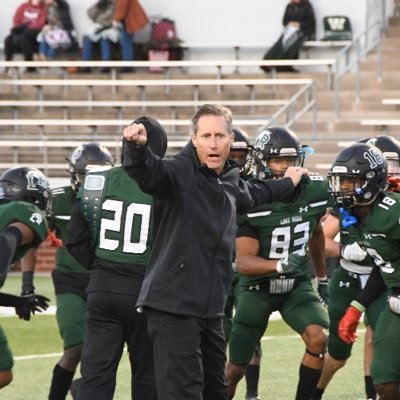
@CoachKirkThor
Head Football Coach/Ath Coord at Mansfield Lake Ridge (TX).MPM certified. Leadership & culture are the edge in coaching. @LakeRidgefb #Be1and0today !

@CoachKirkThor
Head Football Coach/Ath Coord at Mansfield Lake Ridge (TX).MPM certified. Leadership & culture are the edge in coaching. @LakeRidgefb #Be1and0today !